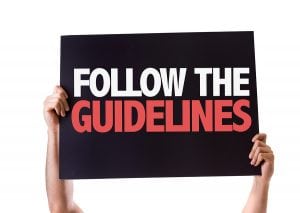An EEOC complaint was filed by The Fortune Society against Macy’s on May 15, 2017 because “Macy’s screening practices result in otherwise qualified applicants and employees being denied job opportunities because of their criminal histories that have no bearing on their ability to perform the job”.
It is important to focus on what Macy’s did wrong when they didn’t follow EEOC guidelines regarding the use of criminal convictions in an applicant’s background. Many who read these types of stories come to incorrect conclusions about the facts.
Myths abound that conclude the EEOC is preventing the use of criminal convictions in the hiring process. Our previous blog post disproves that conclusion. In the EEOC response, dated August 29, 2013, to a letter from 9 attorney generals from as many states, the EEOC Chair, Jacqueline A. Berrien, clarified EEOC’s stance on the use of criminal convictions in the hiring process. The EEOC’s response in regards to the proper use of criminal conviction records was “At the outset, I want to make clear that it is not illegal for employers to conduct or use the results of criminal background checks, and the EEOC never has suggested that it is.”
Some background information from the filing –
- The mission of The Fortune Society is to support successful community reentry, including job training and placement services, for individuals following their involvement in the criminal justice system. Fortune provides reentry-related services to approximately 6,000 people annually.
- Fortune Member A, is a Latino male who applied to a part time position as a Seasonal Holiday Retail Merchandise Handler – MMG Sleepwear at a Macy’s store located in Green Acres, New York on November 3, 2016. On its application, Macy’s required Fortune Member A to complete personal information, including information concerning any criminal conviction history. Fortune Member A completed the application, disclosing a single 2001 conviction. He also included information about his educational and employment history and his qualifications for the job, such as his previous experience working at other retail stores.
- On or around November 9, 2016, Macy’s sent Fortune Member A an email denying him the position of Seasonal Holiday Retail Merchandise Handler – MMG Sleepwear. Macy’s cannot show that its rejection of Fortune Member A’s employment application was job-related and consistent with business necessity. Macy’s did not make its decision based on an individualized assessment of his skills and ability to perform the tasks required for the job he sought.
First, it appears that 15 years had elapsed between the date of his single conviction and the date of application with Macy’s. One of the three “Green Factors” from EEOC guidelines suggest that an employer should consider the elapsed time between the date of the conviction and the date of application. 15 years would appear to be a significant amount of elapsed time. Macy’s appears to have ignored this guideline.
Second, another “Green Factor” to include is the applicant’s history of work since the date of the conviction. Fortune Member A, as stated in the filing, provided his work and education history. His work history included working at other retail stores. Macy’s appears to have ignored this guideline.
Third Macy’s did not make its decision on an individualized assessment. What is an individualized assessment? The employer should provide an opportunity for an individualized assessment for people excluded by the screen to determine whether the policy as applied is job related and consistent with business necessity. The individualized assessment would consist of notice to the individual that he has been screened out because of a criminal conviction; an opportunity for the individual to demonstrate that the exclusion should not be applied due to his particular circumstances; and consideration by the employer as to whether the additional information provided by the individual warrants an exception to the exclusion and shows that the policy as applied is not job related and consistent with business necessity. Once again, Macy’s appears to have ignored this guideline.



